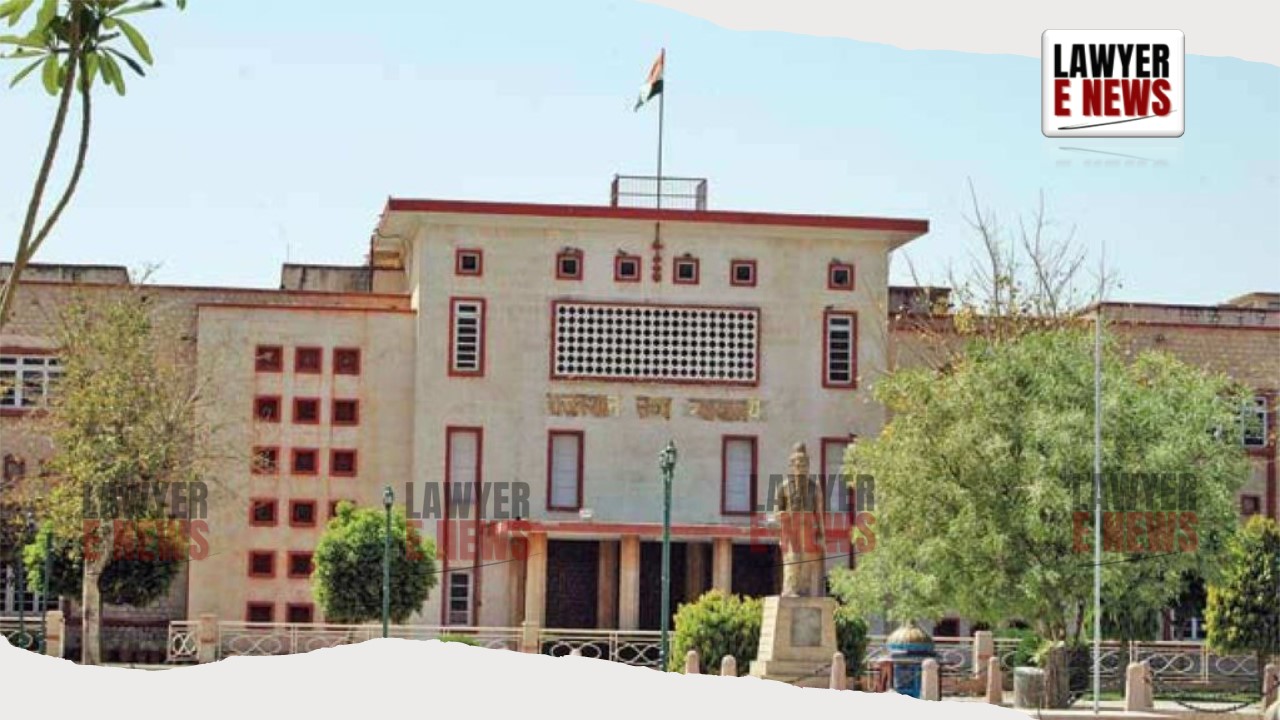-
by Admin
15 February 2026 5:35 AM



Rajasthan High Court at Jodhpur, presided over by Justice Dinesh Mehta, granted bail to Kishanlal and others in a case involving serious allegations under Sections 498-A, 406, 323, 326A, 302, and 304-B of the Indian Penal Code. The court allowed the third bail application filed under Section 439 of the Code of Criminal Procedure, 1973, after finding no prima facie evidence of acid administration in the postmortem report of the deceased.
The case arose from FIR No. 54/2023, registered at Police Station Mahila Thana Rajsamand, Rajasthan, wherein the petitioners were accused of administering acid to the deceased, resulting in her death. The prosecution alleged that the petitioners forced acid into the mouth of the deceased. In prior proceedings, the first bail application was dismissed as not pressed, and the second was withdrawn with liberty to file afresh after recording the statements of the deceased's parents.
The central issue was whether there was prima facie evidence showing the deceased's death resulted from acid administration. The counsel for the petitioners argued that the postmortem report did not indicate any injuries consistent with acid administration, such as burns or damage to internal organs like the face, lips, or throat [Paras 5-6].
Based on information provided by petitioner No. 1 under Section 27 of the Indian Evidence Act, the police recovered a bottle containing hydrochloric acid. However, the court noted that the postmortem report did not show any external or internal injuries caused by acid. The doctors had sent the viscera for examination to ascertain the presence of poison, indicating an absence of visible injuries or burns due to acid [Paras 5, 10].
The court also considered the statements of key witnesses, including the parents of the deceased and a neighbor, who had turned hostile, thereby weakening the prosecution's case [Para 11].
Justice Dinesh Mehta observed that the postmortem report did not reflect any external or internal injuries caused by the administration of acid. The court emphasized that the viscera was sent for examination to detect poison, which suggested a lack of direct evidence of acid-induced injuries. Given these factors and the lack of prima facie evidence to support the prosecution's allegations, the court found merit in granting bail to the petitioners [Paras 6-10].
In light of the absence of prima facie evidence of acid administration in the postmortem report and considering that key witnesses turned hostile, the Rajasthan High Court granted bail to Kishanlal and others. The petitioners were ordered to be released on personal bonds and sureties. However, the court clarified that its observations were based on the material presented so far and would not influence the trial court’s final decision.
Date of Decision: September 17, 2024
Kishanlal and Others v. State of Rajasthan
